
STRATEGIC ASSESSMENT. A poll by leading media group Kompas found that Central Java Governor Ganjar Pranowo is the most preferable presidential contender for those who voted for the National Democratic Party (NasDem) rather than the party’s own nominee Anies Baswedan. NasDem officially declared the former Jakarta governor as its presidential hopeful during a party gathering earlier this month.
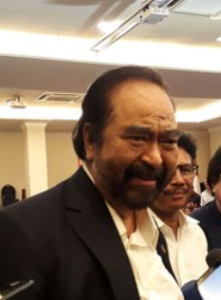
The poll released on Wednesday indicates that Anies is the least desirable candidate among three leading figures who also include Ganjar and Defense Minister Prabowo Subianto, but Anies saw his popularity surge over the past few months.
Indonesia’s popular Central Java governor Ganjar Pranowo’s remarks that he is “ready” to be named his party’s presidential candidate may have marred his chances to become the leader of the world’s third-largest democracy, analysts say.
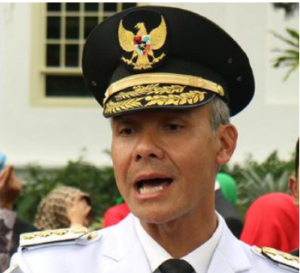
Kevin O’Rourke, author of Indonesia-focused research firm Reformasi, wrote in his newsletter on Friday that Ganjar’s remarks underlined “an increased sense of urgency on his part”.
“Ganjar’s latest remark is part of a delicate tussle that he is conducting with Megawati. The comment shows that he is keen for a breakthrough to the current impasse, and he is prompting Megawati to budge from her inflexible stance, but he is also exercising caution and restraint, lest she fault him for a transgression,” O’Rourke wrote.
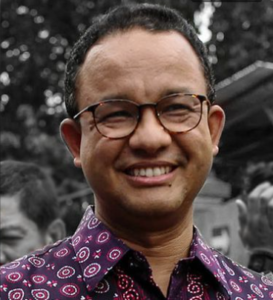
The contest for the 2024 Indonesian presidential election (PE) has taken more shape with the Nasdem (National Democrat) Party’s naming of former Jakarta governor Anies Baswedan as its preferred candidate.
The leader of Nasdem, tycoon Surya Paloh, announced his party’s endorsement of Anies, whose term as Jakarta governor ended on 16 October. Anies is the first non-party candidate supported by a major political party for the 2024 race’s top seat.
Anies’ candidacy has created a dilemma for PDI-P (Indonesian Democratic Party of Struggle) whether to nominate Ganjar Pranowo, governor of Central Java, or Puan Maharani, speaker of Parliament (DPR) and PDI-P Chairwoman Megawati Sukarnoputri’s daughter. The crux of the choice lies in Ganjar’s high electability, with him coming in just a few percentage points lower than Anies when younger voters are polled, while Puan has the family legacy but not the pulling power for votes.
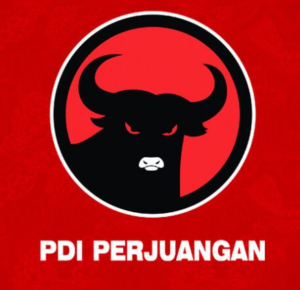
Indonesia’s election rules require that only parties which won at least 20 per cent of the total DPR seats or 25 per cent of votes in the previous election can nominate presidential candidates. Only PDI-P, with 22 per cent of DPR seats, meets this requirement. Nasdem, which has only about 10 per cent of DPR seats, must form a coalition with other parties to formally nominate Anies.
It is speculated that Nasdem might form a coalition with two small parties, the Prosperous Justice Party (PKS, with 8.7 per cent of DPR seats) and the Democratic Party (PD, with 9.39 per cent of DPR seats), but these two parties have yet to declare their support for Anies.
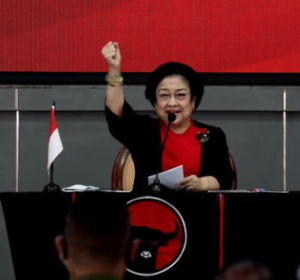
Since the NasDem Party recently declared outgoing Jakarta Governor Anies Baswedan its presidential candidate, the Golkar Party might be buckling under the pressure to finalize its choice candidate too. Though the party previously maintained it would back chairman Airlangga Hartarto’s presidential ambitions, a final decision has yet to be made.
Golkar appeared to have fallen into slight disarray when the party’s advisory council chairman Akbar Tandjung expressed his support for Anies’ presidential bid. Golkar central executive board chairman Ace Hasan Syadzily as well as other party executives were quick to explain that Akbar was simply congratulating Anies. Ace underlined that the party still insists on nominating Airlangga as a presidential candidate, in accordance with the party’s national congress in 2019.
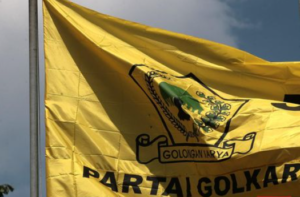
However, because Golkar alone did not meet the presidential threshold mandated to make a nomination, it formed one of the earliest electoral alliances ahead of the 2024 elections, the United Indonesia Coalition (KIB), which includes the National Mandate Party (PAN) and the United Development Party (PPP). But despite being often dubbed a “Golkar-led coalition”, the party itself still has no name strong enough to rival the frontrunners in most public opinion polls.
As the country inches closer to the 2024 presidential election, political jockeying among party elites has taken a new turn, with former president Susilo Bambang Yudhoyono accusing the political establishment of plotting to prevent his Democratic Party from nominating a candidate.
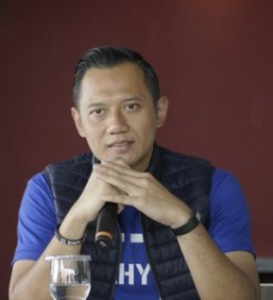
At the Democrats’ leadership meeting last week, party founder Yudhoyono said he had received information that the coming election would be fixed so that only two presidential and vice-presidential candidate pairs would participate.
“My friends, why should I show up again ahead of the 2024 general election? I’ve heard and learned of indications that the 2024 election could be dishonest and unfair,” Yudhoyono said in a video posted on social media by the head of the party’s North Sumatra branch.
Yudhoyono, who is often referred to by his initials SBY, emphasized that no individual or organization should be allowed to orchestrate election processes for its own benefit because elections were meant to represent the will of the people.
Para Syndicate Executive Director Ari Nurcahyo in a discussion entitled “Jokowi’s 2024 Presidential Candidacy vs. Alternative Presidential-Vice Presidential Candidates” on Wednesday, said that State-owned Enterprises Minister Erick Thohir is suitable as an alternative non-party vice-presidential candidate. Ari deemed that Erick has succeeded in managing SOEs. In addition, he also considered Erick a visionary figure.
Indonesia’s 2024 Presidential Election Is Shaping Up Into A 3-Horse Race. Three key factors will shape the 2024 race: First, the qualities that the candidates themselves bring to the contest. Second, political parties are re-positioning themselves for the 2024 elections. The Gerindra party moved first to nominate Prabowo as its presidential candidate, while non-aligned parties did the same with Anies. The popular incumbent President Jokowi retains sufficient political clout to have a strong say. He will want to ensure that a candidate who will preserve his reform agenda succeeds him.
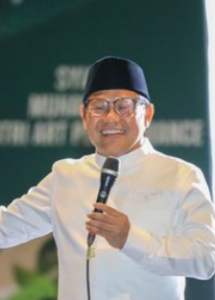
The Center for Strategic and International Studies (CSIS) Jakarta released the “Youth Voters and the 2024 Election: Post-pandemic Socio-Political Dynamics and Preferences” survey results on Monday that shows what young people want in 2024 is honest or non-corrupt leaders (34.8 percent of respondents).
In addition, they also preferred leaders who are populist and simple (15.9 percent), firm and authoritative (12.4 percent), achievers or well-performing when leading (11.6 percent), and have experience in leading (10.1 percent).
CSIS Head of the Department of Politics and Social Change Arya Fernandes said the 2024 elections will be a new era, one of them is because young voters in the age range of 17 to 39 years are predicted to reach 60 percent.
The most recent opinion poll, which focuses on the 2024 electoral outlook of young voters, has revealed that social media darlings and governors Ganjar Pranowo of Central Java and Anies Baswedan of Jakarta are young voters’ firm favorite presidential hopefuls — edging out Defense Minister Prabowo Subianto in a three-horse race.
The survey, released by the Center for Strategic International Studies (CSIS) on Monday, polled close to 1,200 young voters aged 17 to 39 — otherwise known as members of Gen Z and millennials — from Aug. 8 to 13, and had a margin of error of 2.84 percent with a 95 percent confidence level.
It showed that Indonesian Democratic Party of Struggle (PDI-P) politician Ganjar, Gerindra Party Chair Prabowo, and outgoing governor Anies, who still has no political party, would be the top-three choices of young voters if the 2024 presidential race was held today against 11 other hopefuls.
But, should the election be contested only by the three most popular prospective candidates, one-third of respondents would pick Ganjar, while Anies came in second with an electability rating of 27.5 percent, and Prabowo in last place with 25.7 percent.
The results of the latest telesurvey conducted by the United Data Center Institute (PDB) revealed that 83.8 percent of Jakarta residents are satisfied with the performance of Governor Anies Baswedan and Deputy Governor Riza Patria.
“We find that 83.8 percent of respondents claim satisfaction and high satisfaction with the performance of Anies-Riza, and then only 16.1 percent state that they are not satisfied and highly dissatisfied with the performance of Anies-Riza,” said the PDB’s researcher Syariffudin when reading out the poll results in Tebet, South Jakarta, Thursday, September 29, 2022.
The survey was conducted on September 24-25, 2022, involving 400 respondents. Syarifuddin explained that they were selected by using a proportionate snowball sampling via mobile phone numbers. Its margin of error was approximately 5 percent with a 95 percent confidence level.
Indonesia’s fifth-largest political party NasDem on Monday announced that it is backing outgoing Jakarta Governor Anies Baswedan as its candidate for the 2024 presidential election. Anies has consistently ranked among the top three possible contenders to lead the world’s third-largest democracy, according to opinion polls, alongside Central Java Governor Ganjar Pranowo and Defence Minister and ex-special forces general, Prabowo Subianto.

Nasdem Chairman Surya Paloh said he had spent months deliberating on the party’s preferred candidate and ultimately decided that Anies was the best choice. Anies accepted the endorsement and said he was ready to “walk together” with the party, which in the 2019 parliamentary election won about 9% of the national vote. At the time NasDem did not pass the required threshold to put forward a candidate alone, meaning it will have to form a coalition with other parties to formally nominate a candidate for 2024.
With Indonesian President Jokowi barred by the constitution from seeking a third term, the 2024 presidential election will be wide open, meaning voters can choose a candidate propped up by the old guard or an outsider, as Jokowi once was, to lead the world’s third-largest democracy.
Speculation is already rife about some figures, including twice-defeated presidential nominee turned Defense Minister, Prabowo Subianto; Jokowi himself, who has repeatedly been rumored to be seeking constitutional amendments to allow him to run again; and newcomers such as regional leaders Central Java Governor Ganjar Pranowo and outgoing Jakarta Governor Anies Baswedan.

Party leaders also have their eyes on running, with billboards about top politicians like Puan Maharani from the ruling Indonesian Democratic Party of Struggle (PDI-P) and Airlangga Hartarto, the chair of another party, Golkar, lining roads across the country.
These advertisements have stoked further speculation, particularly on whether the PDI-P will nominate Puan — daughter of former president and party chair Megawati Sukarnoputri, herself the daughter of a president — or fellow PDI-P cadre Ganjar, who has consistently ranked among the top preferred presidential candidates by pollsters. Findings of an experimental study titled “The Effect of Presidential Candidates on the Party,” found that if the Indonesian Democratic Party of Struggle (PDI-P) proposed Ganjar Pranowo, Anies Baswedan, and Prabowo Subianto as presidential candidates, it would have a positive effect on increasing the party’s electability for the legislative election. On the other hand, nominating Central Committee Chair Puan Maharani would have no impact and even weaken the party’s vote.
Young people aged between 17 and 39, who will make up 54 percent of voters in 2024, want a president who can make significant changes and they don’t think 70-year Prabowo Subianto, despite his huge popularity, is their man.
In scenarios of two-and three-horse races involving Prabowo, they would instead vote for either Central Java Governor Ganjar Pranowo or Jakarta Governor Anies Baswedan, both 53, shows a survey by the Jakarta-based think tank, the Centre for Strategic and International Studies (CSIS).
Prabowo leads in popularity among all public figures touted for the 2024 presidential election, according to the CSIS survey, perhaps unsurprisingly. But being the most popular figure will not necessarily translate into votes, the survey notes. The CSIS survey was held in August and polled 1200 respondents of the Generation Z (aged 17-24) and millennial (24-39) groups in all 34 provinces.
These two groups include first-time voters and will have a significant but not conclusive impact on determining the outcome in 2024. More importantly, the survey sheds some light on their aspirations and political preferences, which are not necessarily in line with those of older voters.
The bad news keeps on coming for House of Representatives Speaker Puan Maharani, the daughter of ruling Indonesian Democrat Party for Struggle (PDI-P) leader Megawati Sukarnoputri, with poll after poll pouring cold water on her presidential aspirations in 2024.
As she languishes at the bottom of the opinion surveys, her rival for the party’s candidacy, Central Java Governor Ganjar Pranowo, appears to have finally wrested the lead away from Defense Minister and Great Indonesia Party (Gerindra) patron Prabowo Subianto.
To the frustration of Maharani’s supporters, Pranowo keeps getting stronger without lifting a finger to boost his popularity or showing any sign of disloyalty towards Megawati and the party he has actively represented since the mid-1990s.
After weeks of speculation, the NasDem Party on Monday officially named outgoing Jakarta governor Anies Baswedan as its 2024 presidential nominee. The country’s fifth-largest political party originally planned the announcement for November, but analysts say the maneuver is designed to give the party a boost for the 2024 legislative election instead.
Party Chair Surya Paloh, together with several NasDem politicians and Anies himself, made the announcement at the NasDem headquarters in Jakarta. Positioning the party as the moderate choice, Surya affirmed the party’s commitment to nationalism and inclusivity.
The Indonesian Solidarity Party (PSI) on Monday said it endorses Ganjar Pranowo as a presidential candidate to run in the 2024 election. The party said Ganjar is the most suitable candidate to carry on President Jokowi’s legacy.

President Joko “Jokowi” Widodo’s ruling party has yet to settle on a candidate for the 2024 presidential election, putting increasing attention on who the influential leader may back or whether he will consider running for the vice presidency.
Since September, Widodo’s supporters have increasingly been pushing him to run as the Indonesian Democratic Party of Struggle (PDI-P)’s candidate for the No. 2 role. Now in his second five-year term, Widodo cannot run for president again because the constitution limits leaders to a maximum 10 years in office.
U.S. foreign interests was the cause of the rift in the relationship between Susilo Bambang Yudhoyono (SBY) and Megawati Soekarnoputri, Indonesian Democratic Party of Struggle (PDI-P) Secretary-General Hasto Kristiyanto.
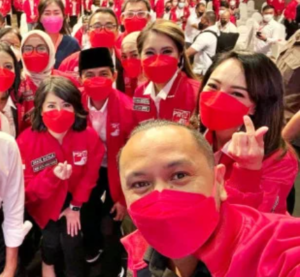
Earlier, National Democrat (NasDem) Party politician Zulfan Lindan made a similar comment, saying that the rift began with a phone call between Megawati and former U.S. president George W. Bush. Bush asked for Megawati’s support for U.S. invasion of Iraq, but the latter refused in order to focus on Indonesia’s foreign interests.
Hasto said Megawati had an excellent personal relationship with Bush, but since Megawati’s foreign policy was very much at odds with the United States, the country supported SBY in the 2004 presidential election. Hasto also said that the SBY administration gave the Cepu Block to Exxon Mobil as a token of gratitude to the United States.
Chair of the Democratic Party faction at the House of Representatives Edhie Baskoro Yudhoyono (a.k.a. Ibas) on Tuesday said the party always puts Indonesia first. “This is a momentum to realize a more advanced and prosperous Indonesia.
The president-elect of 2024 must have an ‘Indonesia First’ vision, prioritizing the interests of Indonesians,” he said in a written statement. He added that major powers like the United States, China, and Russia have their own interests in Indonesia.
The most important thing for Indonesia is to ensure that their interests can benefit the country, adding that Indonesia is neither pro-America nor pro-China. “Indonesia must not only become a champion in its own home, but it must also thrive on a global scale,” he said.
In a Monday discussion on Indonesia’s 2024 presidential election, National Democratic (NasDem) Party politician Zulfan Lindan said the United States will benefit if either Indonesian Armed Forces (TNI) Commander Andika Perkasa or Jakarta Governor Anies Baswedan runs for president.
Andika is close to the United States because he frequently engaged with the country to organize joint exercises, while Anies, whom Zulfan dubbed “the United States’ second golden child,” never visited China or Russia during his tenure.
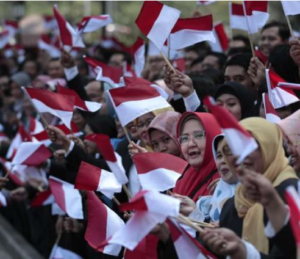
Meanwhile, China and Russia could be benefit if Central Java Governor Ganjar Pranowo or House Speaker and Indonesian Democratic Party of Struggle’s (PDI-P) Central Committee Chair Puan Maharani runs for president, Zulfan said. He also mentioned that Gerindra Chair and Defense Minister Prabowo Subianto has close ties with the United States, China, and Russia.
National Human Rights Commissioner (Komnas HAM) Hairansyah on Friday said the commission has formed a team to monitor citizens’ constitutional rights in the 2024 elections. He assigned the team to monitor the recommendations provided by Komnas HAM to the government and election organizers about the conduct of the regional and general elections in 2018 until 2020.
The team’s activities will include a review of prior monitoring results and intensive conversations with experts, academics, civil society organizations, government officials, and election organizers. This team will also hear complaints about suspected abuses of human rights during the 2024 elections.







